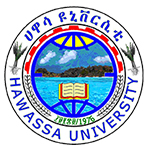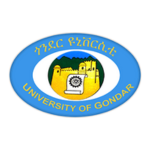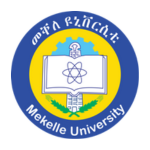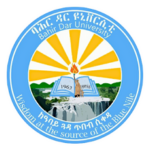Let us help you find the best medical school in Africa!
If you’re considering studying medicine, Ethiopia presents compelling reasons to pursue your education there. Discover a range of benefits, from high-quality medical programs to unique cultural experiences, making Ethiopia an attractive destination for aspiring medical students. Ethiopian medical schools are accredited by the WHO, which ensures that they meet international standards.
Tuition fees for medical school in Ethiopia are relatively low compared to other countries. Ethiopia has a rich tradition of traditional medicine that dates back thousands of years. Studying medicine in Ethiopia gives you the opportunity to learn about this tradition and how it can be integrated with modern medicine.
Ethiopia is a developing country with a high need for healthcare professionals. Ethiopia can be a great place to study medicine and make a difference in the world.
Interested in studying in Africa?
Fill in your details & get a call back from our higher education experts.
Medical Universities in Ethiopia
Since its founding as the University College of Addis Abeba (UCAA) in 1950, Addis Abeba University has expanded to become a renowned centre for education, research, and community activities. With 14 locations, the institution provides 293 graduate programmes, including 72 PhD and 221 Masters programmes, and 70 undergraduate programmes. Over 47,000 students attend it, and over 8,000 people work there. The President of AAU is supported by four Vice Presidents and an Executive Director.
Hawassa University (HU) is a public university located in Hawassa, Ethiopia. It is one of the first-generation universities in Ethiopia and has been in operation since 1976. HU has a long and rich history of contributing to the development of Ethiopia through teaching, research, and community service. HU is a comprehensive university with 9 colleges, 3 institutes, and 7 campuses. It offers a wide range of undergraduate and graduate programs in the fields of agriculture, forestry, business, education, engineering, law, medicine, public health, and the humanities. HU has a large and diverse student body, with over 32,000 students from all over Ethiopia.
The University of Gondar was founded in 1950 by Emperor Haile Selassie I. It was the first modern university in Ethiopia and is located in Gondar, Amhara Region. The university has 12 colleges and offers undergraduate and graduate programs in various fields, including agriculture, engineering, medicine, law, and the humanities. The university of Gondar has a rich history and has produced many notable alums, including former Prime Minister Meles Zenawi. It is also a member of the Association of African Universities and the International Association of Universities.
Jimma University is a public research university in Jimma, Oromia Region, Ethiopia. It was founded in 1952 as Jimma College of Agriculture. It was later renamed Jimma University in 1999 following the amalgamation of Jimma College of Agriculture and Jimma Institute of Health Sciences. The university has a long and distinguished history of providing high-quality education and training to students from Ethiopia and worldwide. It is recognized as one of the leading universities in Ethiopia, and has been ranked among the top 100 universities in Africa.
Mekelle University is a public university located in Mekelle, the capital of the Tigray region of Ethiopia. It was established in 2000 by the merger of two former colleges: Mekelle Business College and Mekelle University College. The university has since grown to become one of the largest and most prestigious universities in Ethiopia. It currently has over 31,000 students and offers a wide range of undergraduate and graduate programs in a variety of fields. Mekelle University is a valuable asset to the Tigray region and to Ethiopia as a whole.
Bahir Dar University (BDU) was established in 2000 due to the unification of two higher education institutions: Bahir Dar Polytechnic Institute and Bahir Dar Teachers College. It currently has over 42,000 students and offers a wide range of undergraduate and graduate programs in a variety of fields. Bahir Dar University provides a wide range of undergraduate and graduate programs in a variety of areas, including Agriculture, Arts and Humanities, Business and Economics, Education, Engineering, Law, Medicine and Health Sciences.






